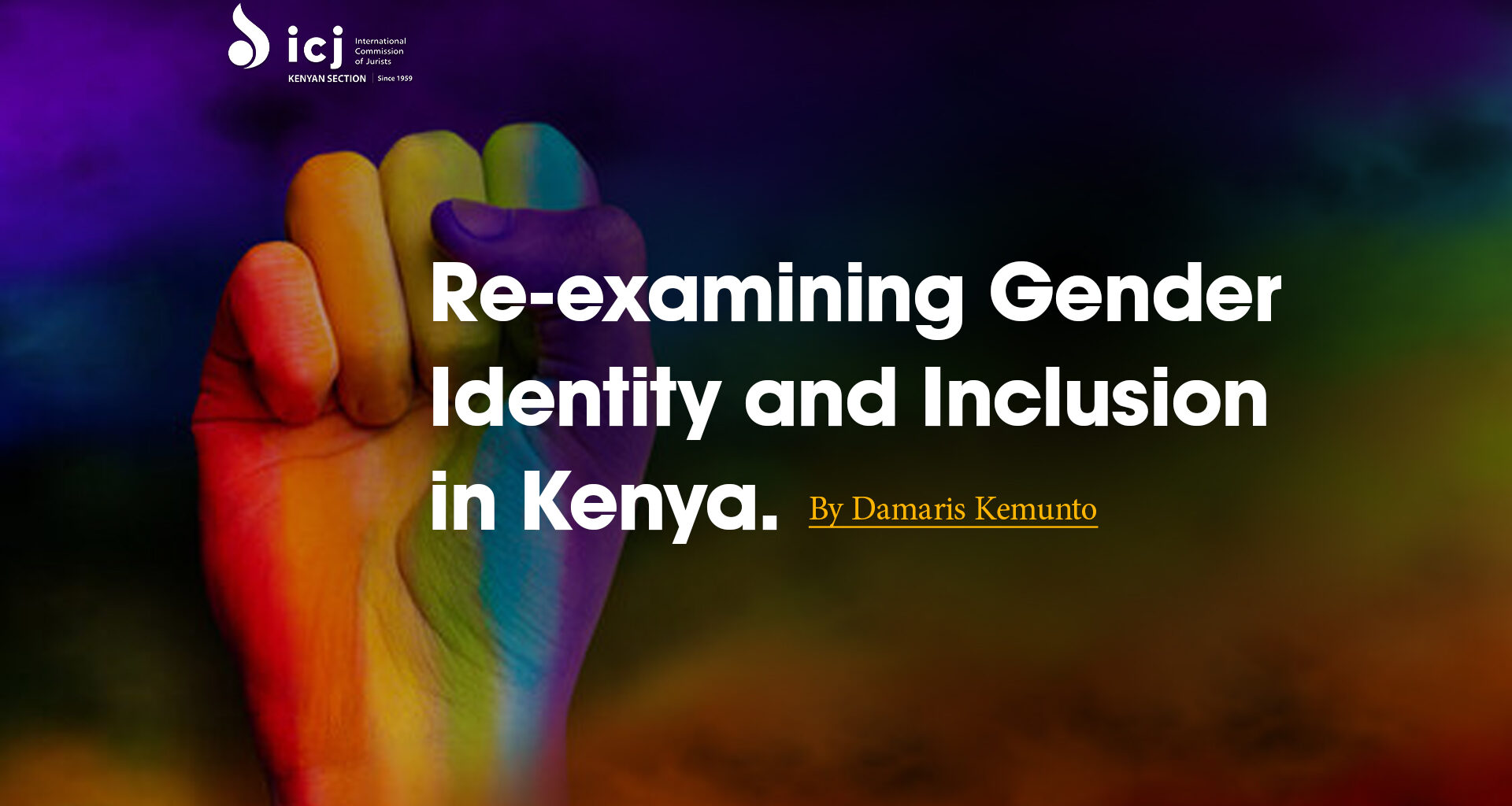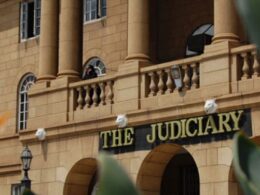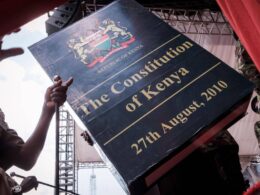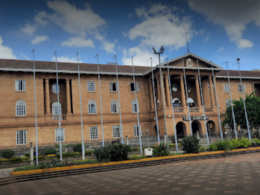By Damaris Kemunto
There are things known and unknown, and in between lies perceptions. I present my thoughts in this article to demystify and bridge the knowledge gap between the known and the unknown to hopefully provide some clarity. Gender identity, typically clustered under the Lesbian, Gay, Bisexual, Transgender or Queer (LGBTQ +), invokes different reactions from different audiences and sectors in Kenyan society. In this article, I interrogate whether LGBTQ+ is understood, known, or unknown in Kenya.
The question surrounding LGBTQ dates back to the 1940s when a renowned author, Allan Berube, through his publication Coming Out Under Fire,[1] advocated for the rights of gays and lesbians. He noted that World War II could be considered the birth of modern gay and lesbian history. In Africa, the depression after World War II resulted in a massive migration of people to cities searching for work, which opened up the possibility of alternative lifestyles. As a result, the first gay bar was opened in South Africa in 1949.[2] In Kenya, the first group was organized to advocate for men who have sex with men in 1999. The organization emerged after community members staged a play at the Kenya National Theatre called “Cleopatra.” The play created an open and safe platform to discuss and reflect on what it means to be a homosexual.
Thus, discussions of LGBTQ matters are not new in Kenya, including more recent jurisprudential developments regarding the LGBTQ movement.
The Constitution of Kenya 2010 recognizes that every citizen has the Right to Life, Human dignity, Equality and Freedom from discrimination and Freedom and security of persons. The African Charter on Human and Peoples Rights has recognized such rights regionally and globally through the corresponding International Instruments. An ideal definition of any citizen would mean anyone who acquired it either by birth or registration. To this end, the State has to ensure that all citizens enjoy their rights and Freedom. In addition, Article 32 of the Constitution of Kenya 2010 provides each citizen’s Freedom of conscience, religion, belief and opinion. Further, it places an overarching obligation to the State to allow everyone to enjoy their rights irrespective of their personal beliefs or religion.
Religious ideology on the Freedom to associate, as evidenced by the response to the recent Supreme Court decision, has exposed deep perceptions and notions about illegalities. I am of the school of thought that religion is a personal choice. However, conflicts between Freedom of association, Freedom from discrimination and the right to manifest one’s religion were inevitable in Kenya. Some religious teachings declare that same-sex sexual conduct is immoral, and some religions condemn not only same-sex sexual activity but also LGBTQ individuals.
In Kenya, the LGBTQ issue has remained controversial and gained traction with the murder of Edwin Chiloba, a fashion icon and an LGBTQ activist in Kenya. Before police investigations, a section of the LGBTQ Community expressed their concerns about the current killing of community members. Moreover, in 2022, Sheila Adhiambo Lumumba, a 25-year-old non-binary lesbian, was found murdered. An autopsy report revealed that Lumumba was raped, strangled, and stabbed several times in the neck and eyes, and their legs had been broken. In Ghana, for example, security forces raided and shut down the office of an LGBTQ rights group in Accra after politicians and religious leaders called for its closure in 2021.[3]
The new wave of the 21st century is of a different magnitude. In addition, emerging repressive laws create an unfavourable environment for the LGBTQ to exercise their fundamental freedoms and co-exist in society.
In Uganda, for instance, its parliament passed an Anti-homosexuality law that criminalizes persons engaging in same-sex conduct. Moreover, individuals or institutions which support or fund LGBTQ rights activities or organizations which publish, broadcast and distribute pro-gay media material and literature also face prosecution and imprisonment. In Kenya, Hon. Peter Kaluma proposes to pass a bill that prohibits LGBTQ activity in the country. According to the controversial bill, sex remains a physical state of being male or female observed and assigned at birth, and not an identity one is free to choose and assign themselves.
Amidst the LGBTQ puzzle, the Supreme Court of Kenya delivered a Judgement on the Freedom of Association of the LGBTQ from Petition No. 16 of 2019. The Judgement upheld the principles of the Constitution of Kenya, which guarantee Freedom of Expression under Article 33, Freedom of Association under Article 36 and the right to equal protection under the law for all persons under Article 27. The Judgement is a significant advancement of the constitutional principles of Human Rights.
From the foregoing, I posit that the issue of LGBTQ is neither unknown nor a perception; it is known. The question that then arises is its illegality. Some jurisdictions have laws that criminalize same-sex conduct, for example, Kenya in its Penal Code in Sections 162, 163 and 165; however, no convictions have been made under the Act. It makes one question the constitutionality of this law. In addition, the African Commission on Human and Peoples Rights (ACHPR) in Resolution 275 strongly urges States to end all acts of violence and abuse, whether committed by State or non-state actors, including by enacting and effectively applying appropriate laws prohibiting and punishing all forms of violence including those targeting persons based on their imputed or real sexual orientation or gender identities, ensuring proper investigation and diligent prosecution of perpetrators, and establishing judicial procedures responsive to the needs of victims.
Given the significant challenges faced by the LGBTQ community in Africa, it is essential to note that some African governments are taking steps to promote the rights of the LGBTQ community. For example, countries have decriminalized same-sex relations recently, including Angola, Botswana, Gabon, Mozambique, and Seychelles. South Africa’s Constitution includes ‘sexual orientation’ as express grounds for protection.
Overall, the LGBTQ community in Africa is hopeful for the future and committed to fighting for inclusion, equality and a renewed commitment to ending discrimination. LGBTQ is known, and we look forward to a future where everyone is treated with dignity and respect, irrespective of their sexual orientation.
Damaris Kemunto is an Advocate of the High Court of Kenya working at the Kenyan Section of the International Commission of Jurists, ICJ-Kenya. She is passionate about International human rights law. Damaris is a champion of global equality and Inclusion laws.
[1] Coming Out Under Fire: The History of Gay Men and Women in World War II By Allan Bérubé 1990
[2] History of Gays and Lesbians in Africa.
[3] https://www.hrw.org/news/2021/09/20/ghana-lgbt-activists-face-hardships-after-detention











